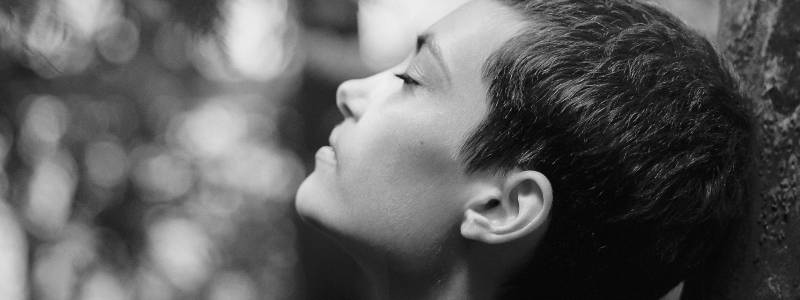
Spirituality is an often-used term these days, and around 20% of the population in the UK define themselves as spiritual, but not in the religious sense. So what does it mean to be spiritual?
There are many definitions of spirituality but generally we could say that it involves having a sense of something bigger than ourselves – a transcendental view of life where we start to realise that there is more to life that we see around us. This can include a sense that there is a God or creator, an intelligence in the universe, or maybe a deeper wisdom that we all carry. However we conceptualise it, spirituality often leads to a greater sense of purpose and meaning as we start to step back from the everyday world and see a bigger picture playing out before us. Spirituality also includes a sense of connectedness, which might be with others, ourselves or with something more transcendental. This feeling of connectedness can bring us a great deal of peace as we start to realise that perhaps we are not alone in the world.
Spirituality is different from religion, but is linked to it. Religion is about adhering to a set of doctrines that define each particular faith. Religion will often have a spiritual component – a worldview that has an idea of something greater than us (God, for example) and may also involve a spiritual connection as part of the religious practice. However, you do not need to be religious to be spiritual, and indeed being religious doesn’t need to be spiritual!
So how important is spirituality to our mental health and wellbeing? There has been a lot of research over the past decade that considers this question. The findings show that engaging in spiritual practices have a positive impact on our mental health. Lower levels of depression can be found in those who are actively involved in spiritual communities. Levels of stress and anxiety can be lowered by engaging in spiritual practices, and spirituality can be instrumental in the recovery from trauma. Also, there can be a greater sense of purpose and meaning from having a spiritual perspective, which can have a positive impact on our wellbeing.
Having a committed spiritual practice – whether it is mediation, prayer, or whatever feels right for you – reading spiritual philosophy and engaging with a spiritual or religious community can be hugely beneficial in improving and maintaining positive mental health. Even if you don’t consider yourself to be spiritual, it is worth spending a few moments thinking about life and the wonders that we see around us. It is easy to see that there is more to life than our own limited worldview and when we step back and consider this, our problems and daily issues can be put into perspective as we gain a more holistic view of life.
Dr Simon Cassar is an integrative existential therapist, trained in Person Centred Therapy, Psychodynamic Therapy, Cognitive Behavioural Therapy (CBT), Dialectical Behavioural Therapy (DBT), and Existential Psychotherapy. He is available in our Hove and Lewes clinics and also works online.
Further reading by Dr Simon Cassar –
Living with borderline personality disorder
Student mental health – how to stay healthy at university
Four domains – maintaining wellbeing in turbulent times
 We spend much of our lives online these days and increasingly more services are available online that traditionally would have been conducted face to face. This is the same with
We spend much of our lives online these days and increasingly more services are available online that traditionally would have been conducted face to face. This is the same with 
 We spend much of our lives online these days and increasingly more services are available online that traditionally would have been conducted face to face. This is the same with
We spend much of our lives online these days and increasingly more services are available online that traditionally would have been conducted face to face. This is the same with 
 We live in a complex world which, for the most part, seems to demand that we achieve certain things to ‘be someone’ and have a successful and happy life. These ‘certain things’ are the obvious trappings of society – having a good education, getting that well-paid job or rewarding career, finding that perfect relationship, having the right house and the right car, and so on. While these can bring certain levels of happiness and contentment for some people, those feelings are usually transitory and once the excitement of the achievement dies down, it leaves us with the yearning for the next thing on the list, the next achievement that will bring us happiness.
We live in a complex world which, for the most part, seems to demand that we achieve certain things to ‘be someone’ and have a successful and happy life. These ‘certain things’ are the obvious trappings of society – having a good education, getting that well-paid job or rewarding career, finding that perfect relationship, having the right house and the right car, and so on. While these can bring certain levels of happiness and contentment for some people, those feelings are usually transitory and once the excitement of the achievement dies down, it leaves us with the yearning for the next thing on the list, the next achievement that will bring us happiness.




